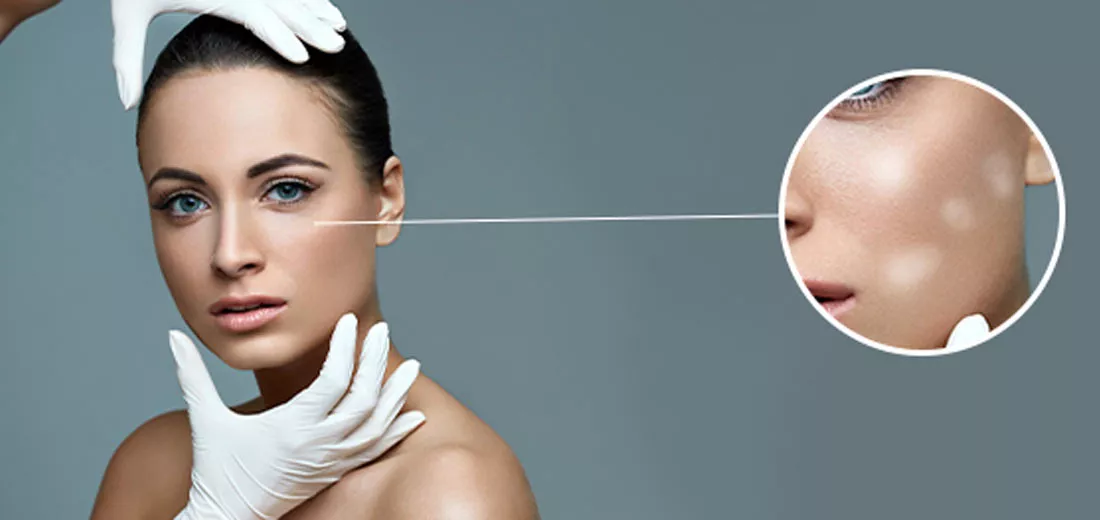Skin allergies can be caused by various factors. An allergic skin condition is when an allergen is responsible for triggering an immune system response. People who have allergies are commonly sensitive to multiple triggers. Common triggers that may cause allergic reactions are medicines, pollen, food, insects, pet dander, dust, and mould spores. It is typical for the human immune system to fight germs, as it is the body's defence mechanism. Genes and environment both play a role in causing skin allergies. This can only be done with early diagnosis and treatment at the best skin clinic in Kochi.
What causes skin allergies?
Immunoglobulin or IgE is an antibody that causes allergic reactions. Antibodies are released to combat harmful and foreign substances in the body. The immunoglobulin is released to destroy the allergen and causes the production of chemicals that trigger allergic reactions. One of these chemicals is called histamine, which causes tightening of the muscles in the airways and the walls of the blood vessels. It also instructs the nose lining to produce more mucus.
It takes at least 10 days or a year to have an allergic reaction to something after your first contact with it. However, if you've developed an allergy, you could react as soon as you come into touch with it. It could also take 1 or 2 days.
The following are the most common triggers of skin allergies:
- Chemicals
- Nickel is a metal used in jewellery, denim, lotions, soaps, shampoos, and cosmetics.
- Latex, which is found in stretchy items such as plastic gloves, garment elastic, condoms, and balloons.
- Poisonous plants, such as poison ivy
- Cleaning supplies
- Bug repellents and sunscreens
- Antibiotics and anti-itch lotions
- Fragrances
Symptoms of skin allergy:
The symptoms vary depending on the type of skin allergic reaction:
Eczema: is the most common skin allergy. Children are more affected by this condition than adults. A common symptom of eczema is itchy, red, and dry skin. It also causes a rash on the knees, hands, and elbows.
Hives: They are red, flat, raised, itchy bumps or wheals that appear on the body. Hives can be considered a sign of a severe allergic reaction.
Contact Dermatitis: It's a reaction that appears when skin comes in contact with an irritant or allergen. Symptoms can include a rash, blister, itching, and burning but are often painful. Contact dermatitis may happen soon after or 48 hours after the skin was exposed to the allergen.
Angioedema: is swelling in the deep layers of the skin and occurs in the soft tissues such as the eyelids, mouth, or genitals. It is often seen together with hives. It could be an emergency if angioedema happens in the throat because the condition makes it hard to breathe.
Treatment for skin allergy:
Antihistamines are effective for treating mild allergies. Other drugs include mast cell stabilisers, corticosteroids, and leukotriene modifiers. Severe reactions require an immediate injection of epinephrine. However, the treatment also varies depending on the allergen. The best way to prevent allergies is to avoid having contact with allergens.
The following are some treatment suggestions for each type of allergic skin reaction.
Eczema:
- Do not irritate the skin by scrubbing, scratching, or rubbing it.
- Use a lotion or ointment with no aroma, alcohol, or colour to moisturise the skin more than thrice a day. Use the same lotion after a bath when the skin is still damp for more effective results.
- Avoid applying lanolin or wool to the skin. Some skin care products contain lanolin.
- Use soaps and shampoos that are mild on the skin.
- Take short showers in lukewarm water, which is gentle on the skin.
Contact Dermatitis:
- Contact dermatitis causes a skin reaction that takes 14 to 28 days to heal.
- If you come into contact with substances that could lead to allergic contact dermatitis (such as poison ivy), immediately scrub the affected area with soap and water.
- Your doctor may prescribe medication to heal the rash, but it will still take a few weeks to heal.
- Calamine lotion and cold compresses can help reduce soreness and itching. Bathing in a lukewarm oatmeal bath can also help to calm the skin.
Angioedema and Hives:
- Antihistamine can be used to treat acute hives and angioedema. Try to avoid the allergen that triggers the reaction in the future. Carry the medicine with you if you know you have severe allergic Responses to some substances.
- There is no recognised cause for chronic hives and swelling. Aspirin, alcohol, and other nonsteroidal anti-inflammatory drugs (NSAIDs) can cause a reaction in certain people.
FAQs:
1. Can allergies be cured?
The allergies cannot be cured, but their symptoms can be controlled through treatment.
2. How can skin problems be diagnosed?
Skin allergies can be diagnosed by identifying the cause of allergies through various tests.
3. How long can a skin allergy last?
Acute skin allergy can last up to one to two weeks. In the case of a severe allergy, it may last for several months or years.










